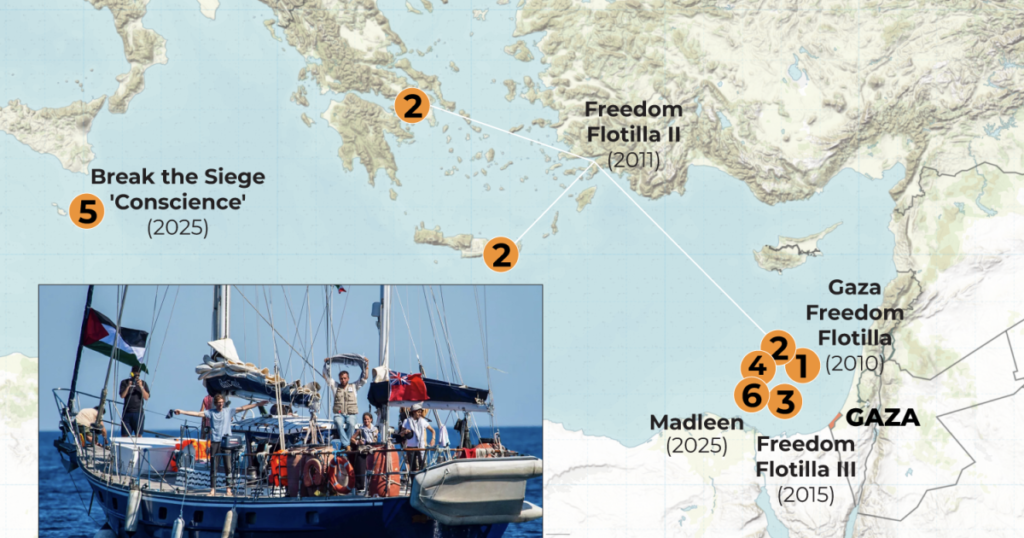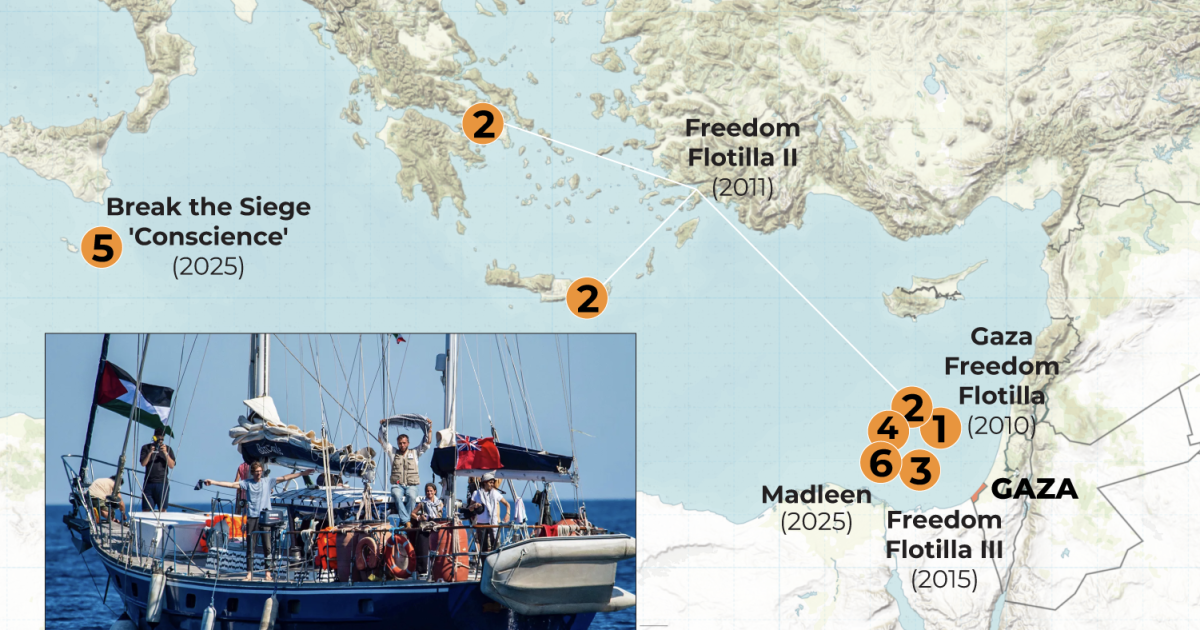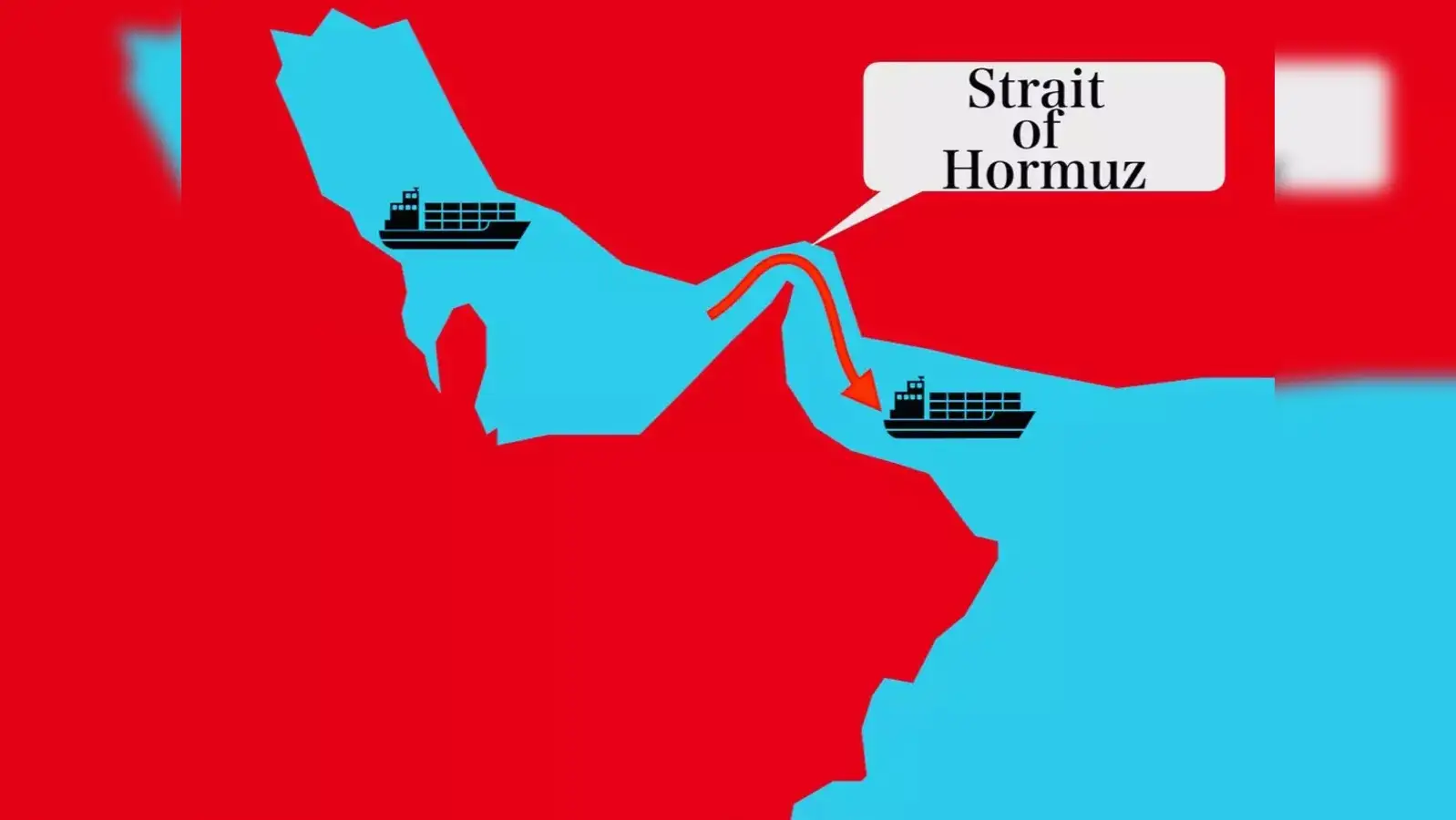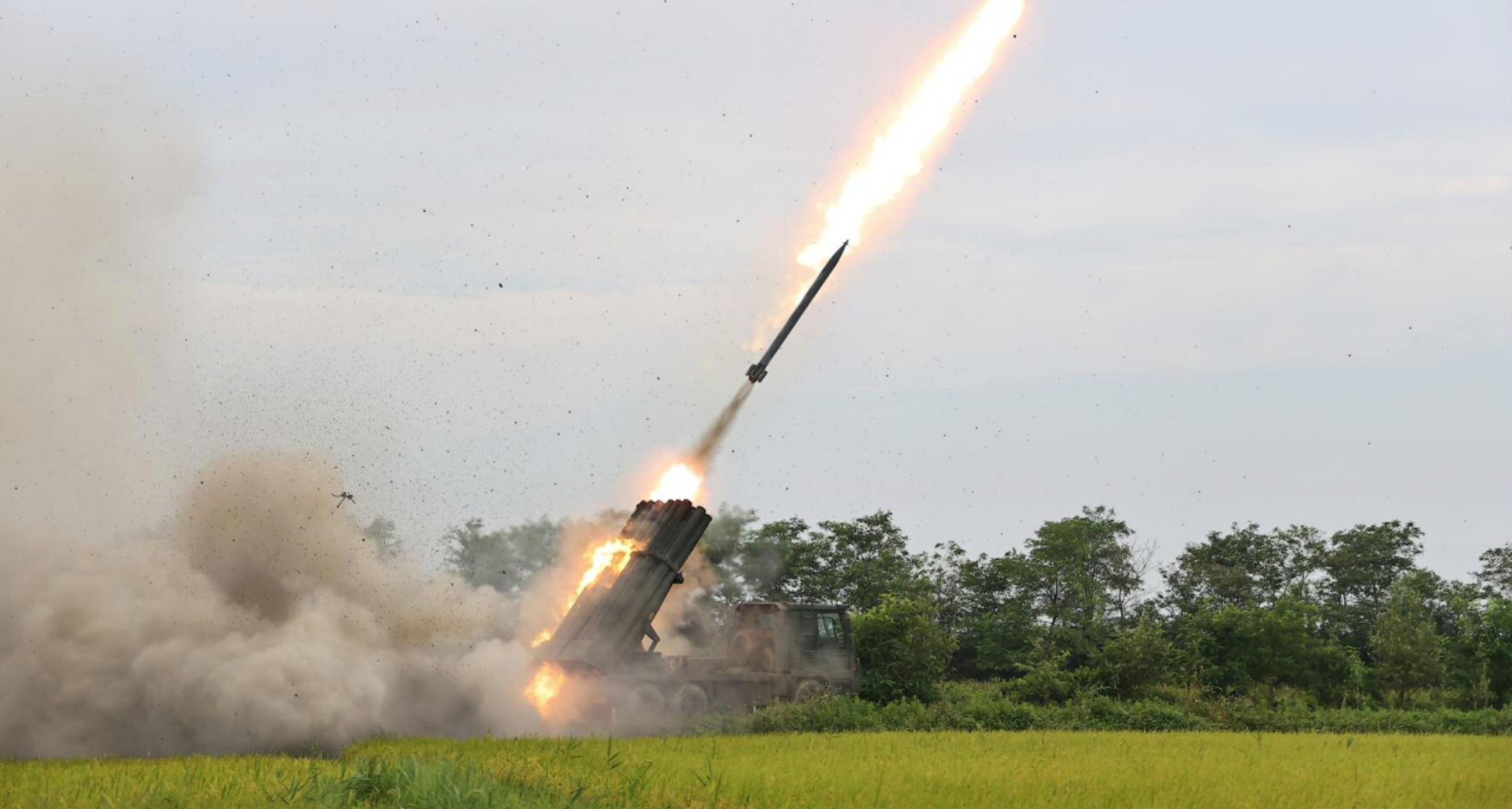Background: Humanitarian Mission Turns into Controversy
Freedom of Gaza
In a dramatic escalation at sea, Israeli naval forces intercepted the Gaza Freedom Flotilla as it attempted to breach the maritime blockade imposed. The flotilla, composed of civilian vessels carrying humanitarian aid and international activists. They was aiming to draw attention to the humanitarian crisis and challenge the long-standing blockade.
Although the flotilla’s organizers asserted that their mission was peaceful, the Israeli military deemed it a breach of national security and conducted a coordinated boarding operation in international waters. As a result, several activists were detained and escorted to Israeli ports for questioning.

The Objectives of the Freedom of Gaza Flotilla
The Gaza Freedom Flotilla has long been a symbol of international civil society’s protest against the blockade of Gaza. Organizers, including prominent activists from various countries, intended to deliver essential supplies such as medical equipment, food, and educational materials.
Moreover, the flotilla sought to raise awareness globally about the humanitarian situation in Gaza. Supporters argued that the blockade has contributed to a severe shortage of basic necessities, restricted movement, and stifled economic development in the region.
The Israeli Response About Freedom of Gaza and Justification
The Israeli government defended the interception by citing national security concerns. Officials argued that while humanitarian concerns are important, the blockade is a necessary measure to prevent arms smuggling and militant activity within Gaza. Furthermore, the military claimed that the flotilla refused to dock at an Israeli port where the aid could be inspected and transferred legally.
According to Israeli authorities, the decision to intercept the vessels was made after repeated warnings were ignored. Consequently, special forces executed the operation with the stated goal of avoiding confrontation and ensuring the safety of all involved.
International Condemnation and Reactions About Freedom of Gaza
Despite Israeli justifications, the raid quickly drew widespread condemnation from governments, human rights organizations, and civil society groups. Several nations whose citizens were on board expressed deep concern and demanded the immediate release of the detained activists.
In addition, international bodies such as the United Nations and the European Union issued statements urging transparency and a full investigation into the incident. While some voices called for calm and dialogue, others questioned the legality of the operation. Especially, since it occurred in international waters.
Impact on Israeli-Palestinian Relations
The raid has added yet another layer of complexity to the already fragile Israeli-Palestinian relationship. Although efforts to resume peace talks have stalled in recent years, actions such as this further erode trust and harden positions on both sides.
From the Palestinian perspective, the interception is seen as yet another example of Israeli aggression for international norms. Conversely, Israeli officials argue that their actions are defensive and aimed solely at protecting national security. As a result, prospects for renewed dialogue have been further diminished.
Role of Civil Society and Global Solidarity Movements About Freedom of Gaza
Civil society organizations have played a central role in organizing the flotilla and keeping international attention focused on Gaza. These groups often act independently of state institutions, operating through grassroots networks and public campaigns.
Additionally, solidarity movements worldwide have responded with protests, press conferences, and calls for governmental accountability. Their actions emphasize the growing role of non-state actors in international conflicts and humanitarian advocacy.
Legal and Humanitarian Freedom of Gaza Implications
The legality of the naval interception continues to be debated by international law experts. Some argue that intercepting a humanitarian mission in international waters violates maritime law and basic human rights principles. Others maintain that blockades, when declared and enforced properly, can be legal under certain circumstances.
Regardless of the legal interpretations, the humanitarian implications are clear. The interception disrupted the delivery of vital aid to Gaza, where civilians continue to face acute shortages and limited access to medical care and education. Furthermore, the detention of peaceful activists has prompted renewed scrutiny of Israel’s blockade policy.
Media Coverage and Public Perception
Global media outlets have extensively covered the incident, leading to intense public debate. While some media reports highlight Israel’s security concerns, many focus on the humanitarian intentions of the flotilla and the perceived overreach by Israeli forces.
This problem coverage reflects the broader polarization of international opinion regarding the Israeli-Palestinian conflict. It also underscores the importance of balanced and accurate reporting in shaping public understanding of complex geopolitical issues.
Moving Forward: Calls Reform
Following the incident, several international leaders and human rights organizations have called for renewed and a reexamination of the Gaza blockade. They argue that while security is important, it must not come at the cost of humanitarian principles.
Furthermore, diplomatic efforts are being encouraged to address the broader conflict and create sustainable solutions that respect the rights and needs of all parties. Continued engagement by civil society, coupled with pressure on political leaders, may help foster a climate conducive to peace and cooperation.
Conclusion: A Critical Juncture for Regional Stability
The raid on the Gaza Freedom Flotilla represents a critical juncture in the ongoing struggle over Gaza. As activists remain detained and political tensions escalate, the international community faces mounting pressure to respond effectively.
Ultimately, this incident serves as a stark reminder of the challenges facing humanitarian efforts in conflict zones. It also highlights the need for principled diplomacy, legal clarity, and unwavering commitment to human rights in navigating such complex and deeply rooted issues.




